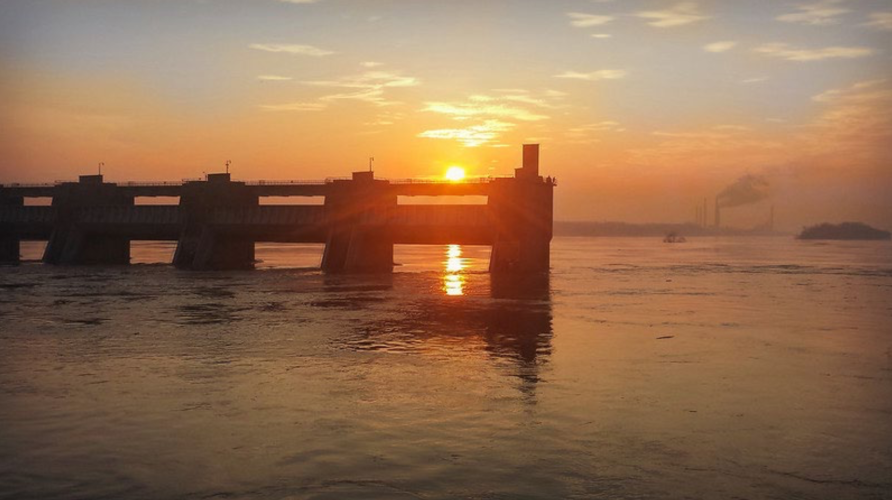

Jen Bowman , Director of Environmental Programs, presented at the Ohio River Basin Alliance 's virtual symposium hosted by Thomas More University and the Thomas More University Biology Field Station .
This event, open to the public and held through Zoom on Oct. 6 and 7, was a combination of the Ohio River Basin Alliance (ORBA) Summit and the Ohio River Basin Consortium for Research and Education (ORBCRE) symposium.
Participants came from across the Ohio River Basin area with 136 registrants from 15 states, including Pennsylvania, West Virginia, Tennessee, Indiana, Illinois, Kentucky, and Mississippi. The sponsors for the programming were the Muskingum Watershed Conservancy District and Fair Shake Environmental Legal Services.
The first day of the conference allowed each of the ORBA working groups to present their goals, objectives and actions that align with the Plan for the Ohio River Basin 2020-2025 , Bowman said.
Keynote presentations were scattered throughout the two days with speakers Colonel Kimberly Peeples (Commander, Great Lakes and Ohio River Division, US Army Corps of Engineers), Michael Miller (Professor, Emeritus University of Cincinnati), Mary Brydon-Miller (Professor, University Louisville), Aukram Burton (Executive Director, Kentucky Center for African American Heritage), Perry Thomas (Coordinator, Kentucky Division of Water) and Chris Barton (Professor, University of Kentucky).
Concurrent research talks were held on the second day, with student research posters being presented in the afternoon. Some of the research topics discussed were on climate change, stormwater, and resiliency, floodplain economic study, outdoor river recreation and historic lock houses and dam sites, screening for fecal coliforms, and cyanobacteria identification.
Bowman’s session, “Knowledge for Informed Decisions,” was held on the first day following the conclusion of the working groups presentations. Bowman said her session aimed to collect information from participants about research capabilities, research priorities, and opportunities for research funding that align with the goals of the Plan for the Ohio River Basin as well as citizen science programs across the Ohio River Basin.
“The Knowledge for Informed Decisions working group’s goals span across all ORBA working groups, we tried to solicit information from the attendees to learn if they play a role in doing research, needing research, or funding research,” Bowman said.
Conference attendees received a link for the ORBA Survey Hub which contains three active surveys for people in the Ohio River Basic to complete.
The first survey is the Annual Riverfest Directory; the public is able to submit responses for events happening in the Ohio River Basin and the alliance can track the activities occurring. The second is the Research in the Ohio River Basin survey, which allows those who respond to tell the ORBA about any research they are conducting, regarding the Ohio River Basin. Lastly, the Water Trail Access Areas survey plans to identify any public access areas there are for the Ohio River Basin.
“We want to create an identity for the Ohio River Basin,” Bowman said. “Just like the Great Lakes efforts accomplished over the past couple of decades, now we need to create an identity for the Ohio River Basin and promote its water resource to the public.”

